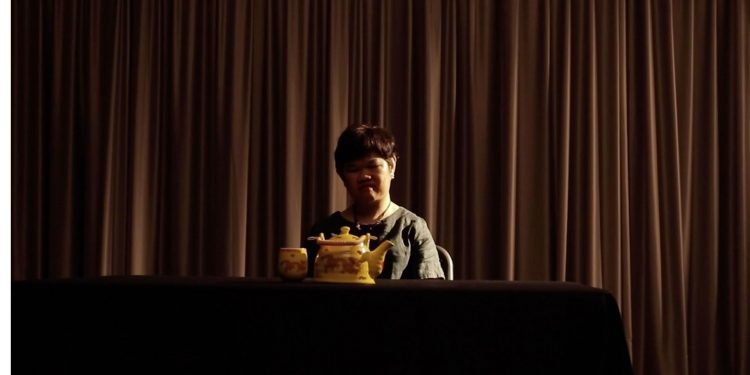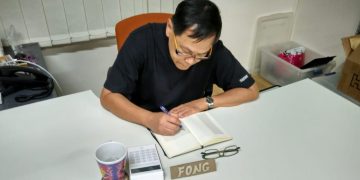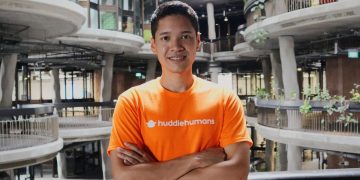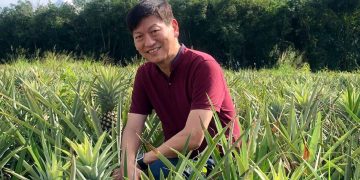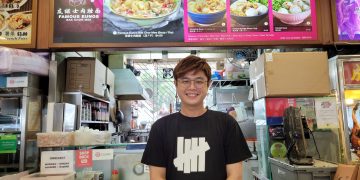For visually impaired Lim Lee Lee, life is about overcoming all odds.
From copywriting and motivational speaking, to acting and producing for film and theatre, the odds she faced were never an excuse for the disabled artist to achieve any of her dreams.
“Nothing happens by chance. I’ve worked in many industries that blind people don’t normally work in, even today,” says the 55-year-old.
Ms Lim was born premature and had a condition which resulted in her becoming permanently blind. Growing up, Ms Lim had limitations placed on her. She was told she would eventually become just a “cane basket maker”. But her zeal for meaningful work led her to reprise many roles in media and theatre productions, such as a writer, actress, producer, director.
Performing in productions like “And Suddenly I Disappear”, “This Is Who I am”, and “Perspectives”, in collaboration with playwrights and directors like Kaite O’Riley, Peggy Ferroa, and Jeremy Goldstein, Ms Lim stands at the forefront of championing for persons-with-disabilities in arts and society.
After the launch of “Perspectives” which garnered over 6,000 views and screened live at the George Town Festival 2021 in Penang, Malaysia, Ms Lim managed to get the Self-Employed Persons Grant from the National Arts Council (NAC) for S$25,000 to help her fund her latest production, Teh Tarik Kakis, a sit-com with producer Jeffrey Tan and fellow disabled artist Stephanie Esther Fam.
“What we aimed to do is to dispel all the myths surrounding disability and to forge friendships in the community,” says Ms Lim.
Despite the growing disability arts scene and support rendered, there are still more disability causes that Ms Lim strives to fight for.
“I’m helping this group of kids who do not meet the academic path and it’s hard for them to find jobs. We are devising this program called life skills through the arts, to help them find a footing in the arts scene that they can go and make a living by doing gigs,” she says.
“I think it’s very important. Thirty years ago, some of my disabled friends were selling tissue paper to make a living. Thirty years later, they are still selling tissue paper. Do we really want these kids to also sell tissue paper to make a living in the future? If we say that we are an affluent and inclusive society, where do they fit in? This is where someone has to do something,” she adds.
TheHomeGround Asia speaks to Lim Lee Lee on championing disability arts, dispelling stereotypes, and inclusivity in Singapore.
TheHomeGround Asia (THG): Where does your interest in language arts and performing arts come from?
Lim Lee Lee (LLL): My love for literature was inspired by a secondary school teacher. She taught a book called “The River Between” by author Ngũgĩ wa Thiong’o. It tells the story, set in the early 20th century, of the separation of two neighbouring villages in Kenya caused by differences in faith.
For performing, I have been a performer since I was primary one. They were small school productions where I played the roles of a policeman and even a tree.
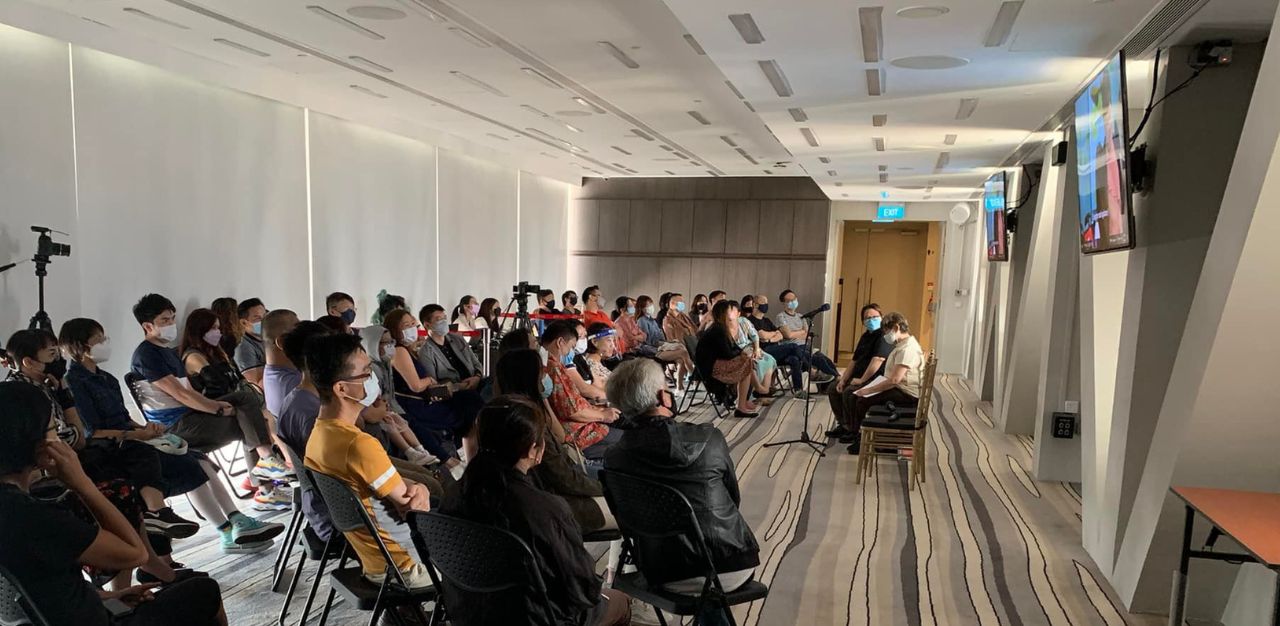
THG: How did you get started in the field of disability arts?
LLL: In 1993, Professor Tommy Koh started the Very Special Arts (VSA), now known as Art:Dis for Arts and Disability Singapore. We were recruited to sing and dance for commercial bodies, but we weren’t paid. After that, VSA started focusing on different things and I went on to pursue other things as well.
In 2016, a friend from the National Arts Council (NAC) introduced me to Mr Peter Sau, the founder of Project Tandem and a theatre director for disability arts in Britain. That relationship grew and we worked with playwright Kaite O’Riley who wanted to write human interest stories.
We did some research and it expanded to become a collaboration with other disabled artists from Britain in 2018. We did some projects like “Making A Stand” and “And Suddenly I Disappear”. That was how I became an actress.
In 2020, British artist Zoe Partinton called me for a project. The Covid-19 pandemic in Europe and Britain was deadly, where a large proportion of the casualties were from very vulnerable groups. She wanted to do something for the International Day for Disabled People. That was when I performed alongside Japan, Mexico, Brazil, US, and Britain. I represented Singapore. We wanted to spread a message of hope to everyone.
A point that we made was that we wouldn’t do any work for free so we tried to get funding. We applied for the digital representation grant from the NAC and that was approved.
We got our team together with Peggy Ferroa as the director and I was the lead artist with Stephanie who is in a wheelchair, and Victor Tan, a blind sculptor. The Harmony Community Choir provided the soundscape. That was how “Perspectives” came about.
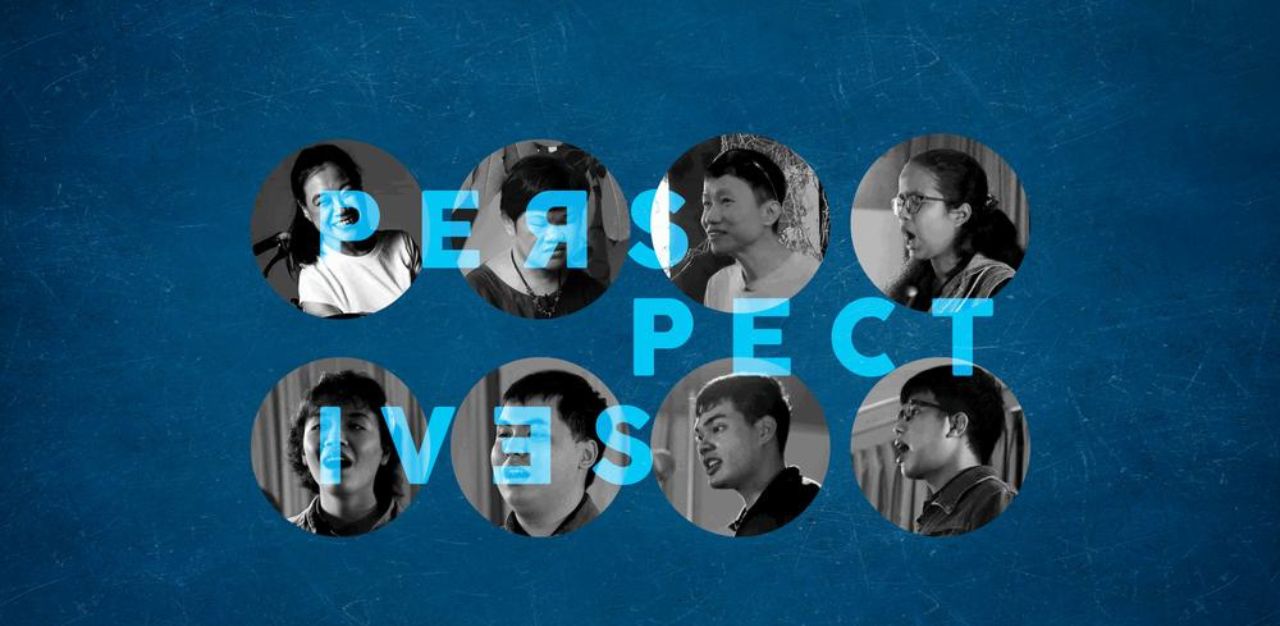
THG: Disability arts, like you mentioned, is a growing scene in Singapore. What is your hope for it in the future?
LLL: Collective Perspectives is a social enterprise established to professionalise the artistic progress of disabled people. For every engagement that we give, we help disabled artists facilitate a fee, compared to charitable performances that are common.
I believe that if abled artists can command thousands of dollars, disabled artists should be able to command fair compensation. This is something I’m advocating for and want to see change in the next few years. It’s not easy, I know, but somebody has to stand up to do something.
I think that Singapore should be ready to move towards other formats like True Colors Festivals instead of supporting disablied artists for the sake of supporting them. It doesn’t matter whether you’re disabled as it’s about the craft. I just hope that one day disabled artists can perform with mainstream artists on the same stage, not on a separate stage.
I believe the policymakers are trying their best. But to be honest, the Enabling Masterplan 2030 seems like fitting new wine into old wineskins. They want employers to employ persons with disabilities for the same old jobs, but forget that disabled people are now more educated, and can do more things with their skills.
THG: When you’re on set for your productions, how do you overcome your visual impairment to perform your various roles as an actress or director?
LLL: As an actor you have to walk your footings and be very familiar with the stage. For example, in the first scene of “And Suddenly I Disappear”, all of us had to walk out on stage to introduce our characters. For me to be able to walk to that particular spot took about three hours of practice. It takes a lot of concentration and effort.
As a director, I need to know what props and settings I need for what I want portrayed. At a recent shoot for “All The Light That I Hear” where I was both a producer and director, I was telling the actor the instructions for the shoot, but he kept speaking to the videographer and ignoring me. Finally, the videographer told him to refer to me because I was the director. That’s how we create awareness and respect for each other’s role.
THG: Some things you speak about through your productions and others through talks. These include meaningful work and your optimism for life. Where does this mentality come from?
LLL: From the school of hard knocks. You can’t be sitting at home doing nothing, right? It’s always the first job that starts you out and where you decide how you want to progress from there, what directions you want to take.
Setbacks are part and parcel of life. If you can analyse and figure out what went wrong, you can retrace and learn a better way of doing things. Don’t dwell on setbacks but move on and make sure that you just do whatever is necessary because that time will never return.
My grandmother was my first educator. She taught me how to pluck bean sprouts and sweep the floor. My uncle taught me how to use the telephone for emergencies. As I grew up, I learned cooking and essential skills to be able to live independently.
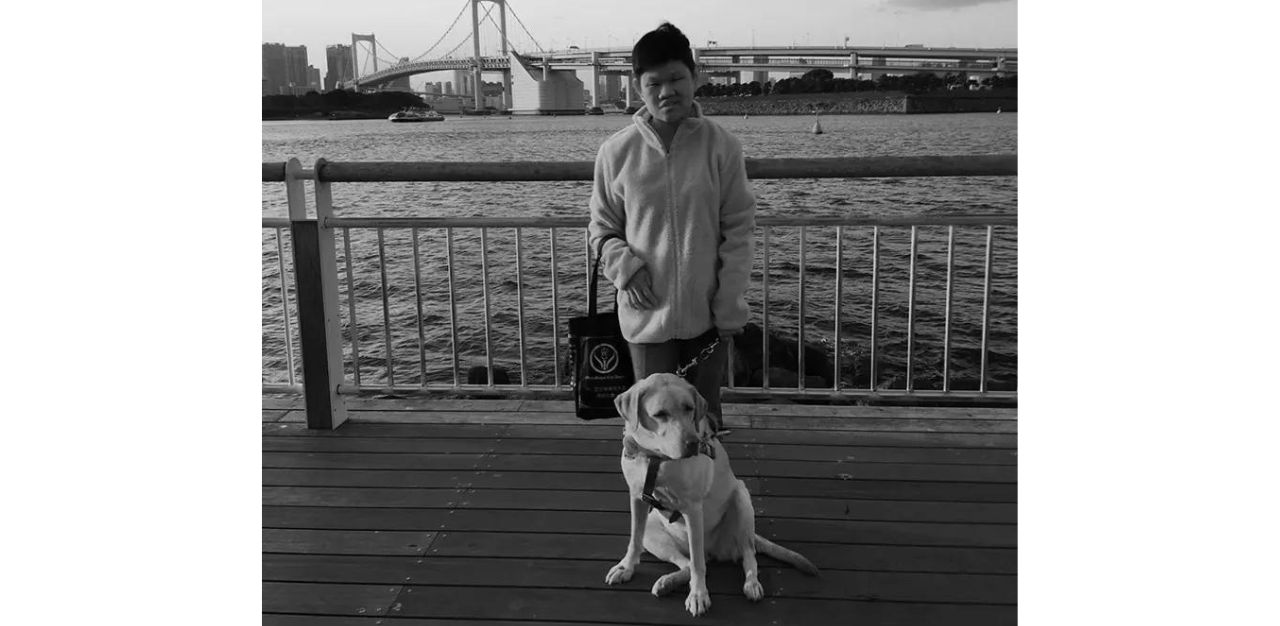
THG: You shared previously about the earlier experiences in your childhood where people labelled you negatively. How have you witnessed society progress in this regard?
LLL: I would say it’s improving, but we’re not there yet. People ask me rude questions about my condition. And many of these people are educated but they presumed that I’m not educated and couldn’t speak English so they often address me in different dialects.
Education goes a long way but has to be targeted. I think kids these days are more informed than adults. There was an incident that I remember vividly. I was on a bus with my guide dog and there was a boy who recognised my guide dog Nice, from a talk I gave at his school. He began sharing with his friends and mother about what he learnt about my guide dog.
Most of my negative experiences were from adults, not children. I think people can generally be more polite in their approach.
THG: You speak about how as a student, you used to submit incomplete homework as you did not know that the typewriter ran out of ink. How has the advancement of technology improved your life as a visually impaired person and what other improvements can be made to enable you further?
LLL: Technology has enabled us to be independent. However, Singaporean websites are still not so friendly for the visually impaired. I hope that it can follow guidelines and standards like in the US and Britain, which are friendlier for the visually impaired.
Take for instance, when we needed to book a Covid-19 vaccination online. I could access and read the places available for me to take my vaccine, but I couldn’t access the checkbox for the place I wanted to get my vaccination. It was a lot of hassle and I had to get my friend to help.
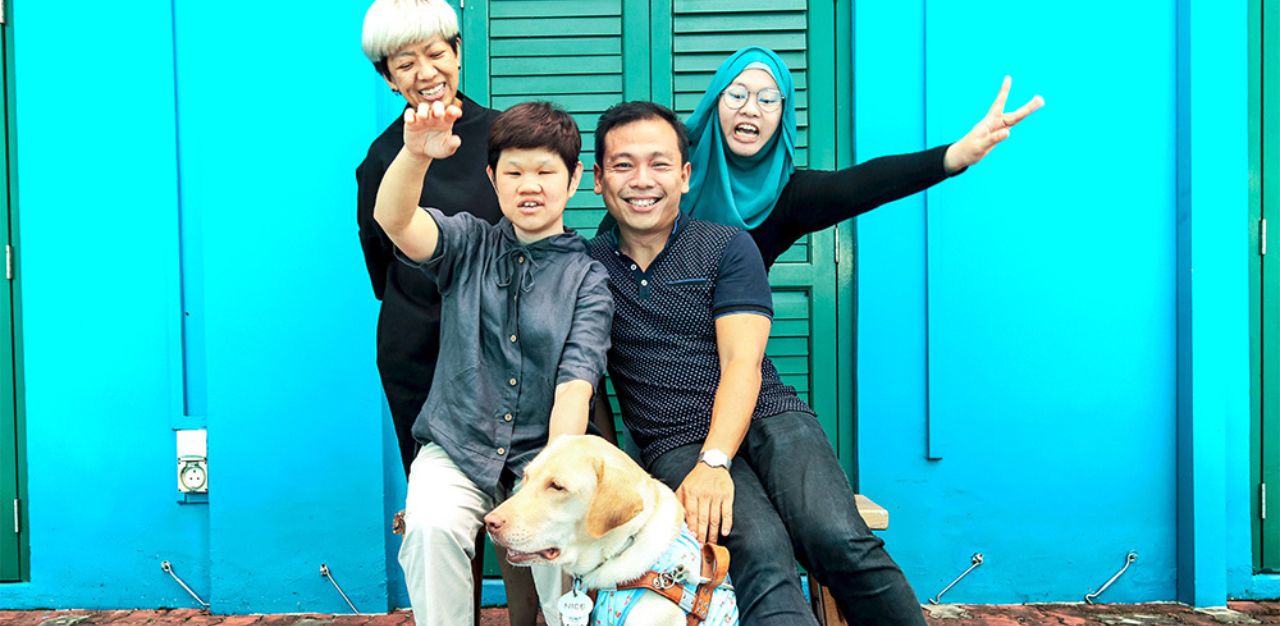
THG: You once wrote in an article about your dreams to be a producer. Having accomplished it, are there any other dreams you would like to accomplish?
LLL: I’m a trained massage therapist and a trainer as well. So I’m doing a lot of things which I find interesting. These are the things that piqued my interest because I want to make my brain active. These are side businesses that I hope can progress.
THG: What message would you like to share with persons with disabilities to strive for their dreams like you have?
LLL: Be bold. Be daring. Just go after your dreams. Look for collaborators that can help you expand these dreams. Helen Keller once said, “The only thing worse than being blind is having sight but no vision”.
RELATED: True Colors Festival finally taking off after having been postponed twice
Join the conversations on TheHomeGround Asia’s Facebook and Instagram, and get the latest updates via Telegram.



